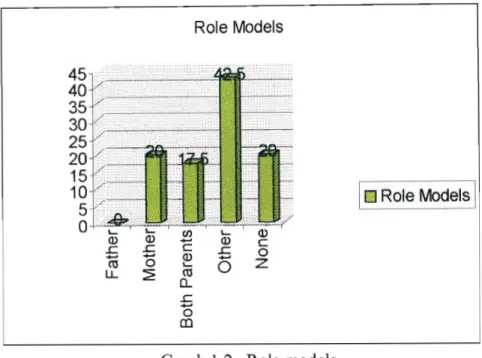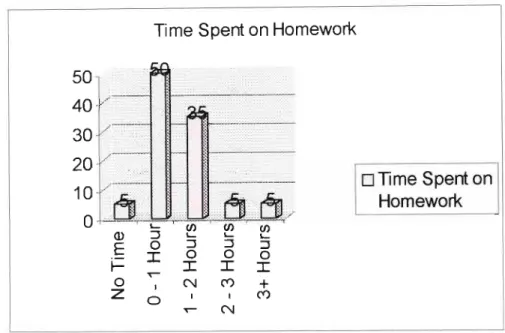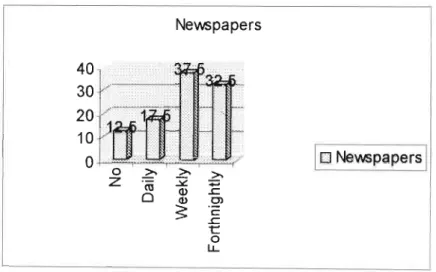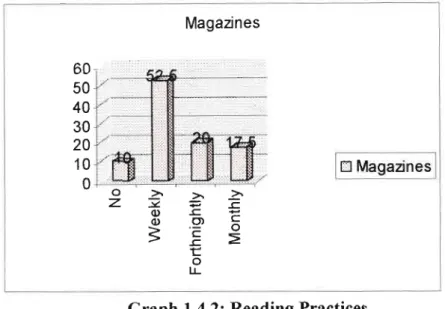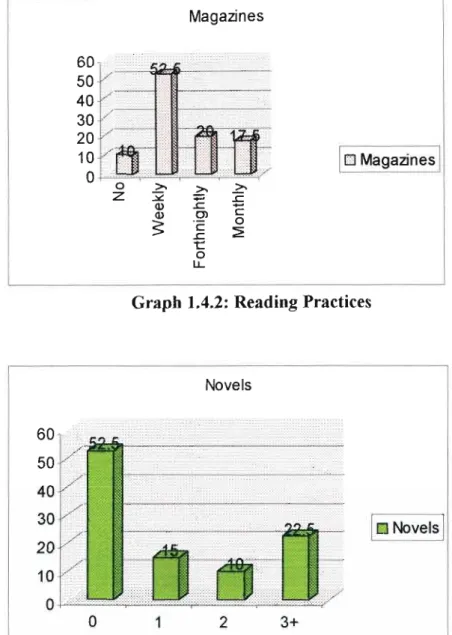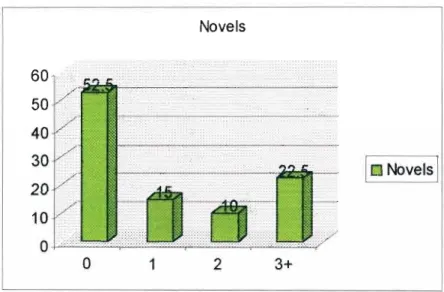I realized that there is a big difference between discourses at home and at school, and I decided to pursue this matter during the course of my master's studies. The discourse of home, school, friends and gangs was most prominent in the findings and the participants' struggles to accept these had a positive and negative impact on their sense of self-satisfaction, as revealed in this dissertation.
Introduction
Many staff members are no longer part of the community, having moved to other suburbs of the city. Since the students' primary discourse is different from that of the teachers, or in conflict with the school, learning is much more difficult to achieve.
Personal Pedagogical experiences
I incorporated issues from literature study, current affairs and school issues into the dialogue and constantly tried to expand their language use. I was informed of facts that startled me in the sense that I became aware of the unnecessary pressure I was putting on many children through my demands as a teacher.
Motivation for this study
More relevant to the motivation for this research is the information I have obtained about students' primary discourse. As a consequence of this methodological strategy, I became increasingly aware of the tensions between the discourses of the home and school environments, and when I first began my applied language studies, this became the focal point of my research.
Ghosts between two fzres: the dilemma of the Coloured identity
Fanon refers to the power of the colonizing presence which is difficult to dismiss as it is not simply an external force. The displacement of the apartheid state has made it necessary to overcome and reshape the identities forged by having to live under and respond to apartheid policies.
The Construction of Identity: a personal perspective
Therefore, this research allowed me to locate myself on a personal level by reflecting on my past experiences as a person of color, but also to accept the construction of multiple identities as a valid way to find a sense of belonging. Suffice it to say that the theories of Discourse (Gee, 1996) and schools of identity debate were powerful mechanisms that facilitated my personal construction of identities and allowed me to achieve the sense of personal integrity that Rutherford refers to.
Research in the field
Wallerstein (1991) wrote an insightful article on the ways in which the identities of people of color were constructed, and these people's responses to the label of people of color. However, I have not come across any research that has explored new ways in which primary and secondary discursive practices impact students of color's sense of who they construct themselves.
Theoretical framework
Theories of Identity Construction
- The Traditional Perspective
- The Social-psychological perspective
- The Social Constructionist perspective
- The Post-Structuralist perspective
Role theorists capitalize on this criticism and argue that the social situation and social position will determine the subject's behavior. In the social constructionist view of identity, the role of the past is also crucial.
Primary and Secondary Discursive practices and their impact on subjectivity
Secondary discourse involves interacting with people who do not have common experience and knowledge in the area of the primary discourse. However, Gee differs from Krashen in terms of the parameters in which acquisition and learning occur.
The impact of Discursive practices on Teaching and Learning
The importance of the discursive practices of the home cannot be emphasized enough in terms of their impact on the level of success of children in the literacy practices of the school - they form the foundation for literacy success in school. In addition, socio-economic factors often have a negative impact on the subject's mastery of the school discourse.
Foucauldian and Social Constructionist views of discourse
It has meaning because of its relationship to other signs, other interpretations of the word 'woman', such as 'lady', 'marriage', 'mother', etc. Foucault refers to "discursive boundaries", where we are limited in what we say and do according to the boundaries of the discourses.
Conclusion
The core of my analytical framework is social constructionist in nature and, within this broader context, I have included interpretive and qualitative strategies for data analysis. Due to the volume of data collected, this analysis followed a series of steps: first, I took a content-based approach in my analysis of the first two activities (weekend activity diary and reflections on home and school life ); second, a mix of quantitative and qualitative approaches in relation to questionnaires; and finally, I drew on some aspects of a Foucauldian view of Discourse, but my main analytical tool is the social constructionist view of discourse that I used to analyze the essays on gangsterism and the interview data.
Central Research Question
Research paradigm
In this study, the status of the participants and of the researcher does not allow for easy replication or external reliability. The purpose of the analysis is summarized by Foucault's thoughts on truth: it is not intended to discover whether their version is a true or accurate reflection of what is real. Another reason why it is difficult to generalize the findings in this type of research is once again emphasized by Foucault's view of the self as a 'self'.
Data Collection
- Dialogue Journals
- Negotiation of research relationship
- Reflective Writing Tasks
- Questionnaires
- Essays
- Interviews
To begin, I reviewed all the dialogue journals from the previous year, trying to understand the home life of the black students. However, I numbered the scripts according to the class lists and later extracted the Color scripts. Once again, only the essays of students of color were retained for the purposes of this study.
Process of Analysis
- Reflections on home and school lives; diary activity
- Questionnaires
- Essays
- Interviews
I also attempted to extrapolate the number of working siblings to gain insight into participants' attitudes toward their future career choices. My goal in administering the essays was to determine the validity of the information in the newspaper report about the end of gangsterism. Which discourses emerge in the language of the participants, and how do they relate to each other.
Conclusion
Opinions ranged from being happy to live in the area, to considering it a dangerous, crime-ridden suburb. I hoped to use the data from the interviews to clarify and expand on issues revealed in the previous analytical steps. Within these practices and actions, I will examine the impact of the primary and secondary discourses on their construction of identities, as well as the ways in which educators can transform their teaching methods to improve the learning experience at schools.
Interpretation of Data
Reflective Writing tasks supported by relevant Questionnaire analysis
- Discourses of Home and School
- Discourses of Friendship and School
- Discourse of the Church
- Conclusion
How the home environment affects their sense of self in the school discourse. Where this expectation was met, the subject adapted much more easily to the secondary discourse of the school (quotations not proofread):. It is not clear if this is because they are active in the discourse of the Church or if they simply attend because of the lack of other forms of entertainment on an early Friday night.
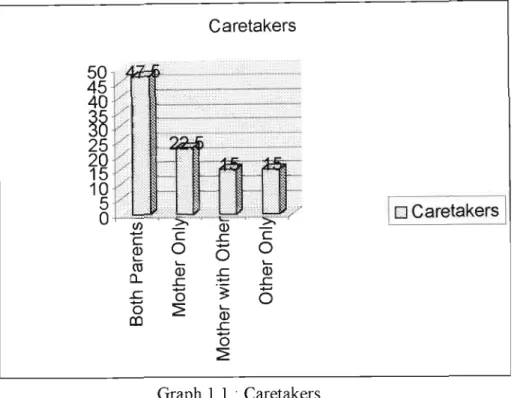
Analysis of Essays
Another typical respondent positions himself outside the discourse of gangsterism by attributing gang activity to a social class: he lives at the top end of the suburb (the more affluent area) and 'you don't see or hear much about the fighting or the crime in the lower end of Caliban" (S 2). A quantitative analysis of group 2 showed that 82% of participants did not agree that gang activity had ceased or decreased. In both the reflective tasks and in the essays, the the way in which people of color are seen as a group by others in society emerged as a disturbing aspect for some participants.
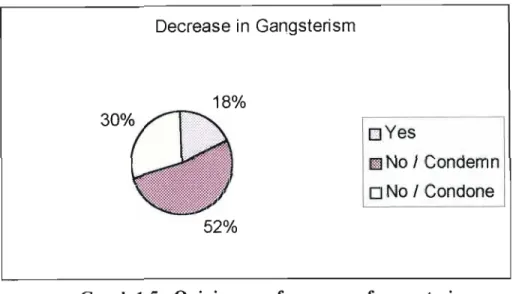
Analysis of Interviews
- Interview 1 (Appendix 6)
- Interview 2 (Appendix 7)
- Interview 3 (Appendix 8)
- Interview 4(Appendix 9)
- Interview 5 (Appendix 10)
- Interview 6 (Appendix 11)
- Conclusions
She also rejects the Discourse of the Church, because she has no faith in anything that is not tangible. As a result, she is able to master the secondary discourse of the, and even excel. Nolan (Interview 3) powerfully positions himself in the discourse of the gangs, while confessing that he is not a gangster.
Pedagogical implications of the findings and suggestions for further research
Pedagogical implications of the findings
However, many students do not belong to the mainstream and are not effectively socialized into the school's discourse. We need to move away from the conventional and limiting view that those who control the school's discourse are successful and the rest are failures. Instead, we need to explore other ways to reach these students who are not successfully interning in the school's conventions.
Suggestions for further research
A proposal for further research is to carry out an ethnographic study of a group of families over a certain period of time, exposing them to the process of socialization into the discourse of the school, and monitoring their support for their children and the impact it has on how the children manage the school convention, as well as the ways in which this intervention it helps build the identities of both parents and children. These can then be used by teachers to conduct evaluations on the success of these texts in delivering on all required learning outcomes, as well as on students' responses to the nature of these texts. Another area for further research is how race influences the cultural identity of young South Africans in the new South Africa.
Conclusion
This was a content-based analysis of the data to identify common responses and divergent responses. I also hoped to triangulate the findings from the 1999 journals with this data to corroborate the students' experiences, and to connect the primary and secondary discourses by identifying common categories and topics covered in the data . If you feel this way in any of the following places or with any of the following people, please check the box.
ROLE MODELS
ENVIRONMENT
Over the past few years many articles have appeared in the newspapers about gangsterism in Eastwood. I need your input on the article printed below. It appeared in The Natal Witness on 26 January 1999. I would like to find out~~ whether you think it is a true reflection of changes in society or not. If you agree that things have changed, what can you tell me to prove your point.
And in the classroom, what do you do to make yourself feel like you belong. When you spend the evening with friends, how do you feel in their company. I Jackie, with all the other things going on in your life, how do you feel in the classroom.
